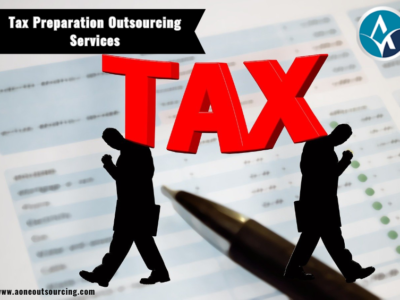
Investing in real estate can be a lucrative endeavor, offering long-term financial stability and wealth accumulation. However, for many aspiring investors, the initial hurdle lies in securing financing for their investment properties. Obtaining an investment property loan is a crucial step in realizing your real estate investment goals, but it’s often accompanied by uncertainties and questions. How likely is it that you’ll qualify for such a loan? What factors influence your eligibility? In this comprehensive guide, we’ll delve into the intricacies of investment property loans, exploring the various factors that determine your likelihood of securing one.
Understanding Investment Property Loans
Before delving into the likelihood of obtaining an investment property loan, it’s essential to grasp the fundamentals of such financial instruments. Investment property loans are specifically designed to finance the purchase or renovation of properties intended for investment purposes. Unlike traditional home mortgages, which primarily cater to owner-occupied properties, investment property loans are tailored to meet the needs of real estate investors.
These loans come in various forms, including conventional mortgages, government-backed loans (such as FHA, VA, or USDA loans), and specialized products offered by private lenders or financial institutions. The terms and conditions associated with investment property loans may differ significantly from those of residential mortgages, necessitating a thorough understanding of the specific requirements and obligations involved.
Factors Influencing Loan Approval
Securing an investment property loan hinges on a multitude of factors, each playing a critical role in determining your eligibility and the terms of the loan. While lending criteria may vary among lenders and loan products, several key factors commonly influence loan approval decisions:
Creditworthiness: Your Financial Backbone:
One of the foremost considerations for lenders is your creditworthiness, as reflected by your credit score and credit history. A strong credit profile not only increases your chances of loan approval but also enables you to qualify for more favorable interest rates and terms. Lenders typically assess your credit score, payment history, outstanding debts, and credit utilization ratio to gauge your financial reliability and risk level.
Aim for a credit score of 620 or higher to improve your prospects of obtaining an investment property loan, although some lenders may impose stricter requirements. Additionally, maintaining a clean credit history, making timely payments, and minimizing outstanding debts can bolster your creditworthiness and enhance your loan eligibility.
Debt-to-Income Ratio: Balancing Act for Lenders:
Another crucial metric evaluated by lenders is your debt-to-income (DTI) ratio, which compares your total monthly debt obligations to your gross monthly income. This ratio provides insight into your ability to manage additional debt responsibly while meeting your existing financial commitments.
Lenders typically impose maximum DTI thresholds, typically ranging from 36% to 50%, although specific requirements may vary depending on the loan program and lender preferences. Lower DTI ratios indicate a lower level of financial risk, making you a more attractive candidate for loan approval. To improve your DTI ratio, consider reducing your existing debts, increasing your income, or opting for a co-signer with strong financial credentials.
Down Payment Requirements: Investing in Your Investment:
Unlike primary residence mortgages, which may offer down payment options as low as 3% to 5%, investment property loans typically require a more substantial down payment. Lenders typically require down payments ranging from 15% to 25% or more for investment properties, reflecting the higher risk associated with these ventures.
Your down payment not only serves as a demonstration of your commitment to the investment but also mitigates the lender’s risk by reducing the loan-to-value (LTV) ratio. A higher down payment can improve your loan terms, lower your monthly mortgage payments, and increase your chances of loan approval. Save diligently and explore creative financing strategies to accumulate the necessary funds for your investment property down payment.
Property Analysis: Evaluating Investment Potential:
In addition to assessing your financial credentials, lenders carefully evaluate the investment property itself to determine its viability as collateral for the loan. Factors such as the property’s location, condition, market value, rental income potential, and projected return on investment (ROI) are scrutinized to assess its investment attractiveness and risk profile.
Properties located in desirable neighborhoods with strong rental demand, appreciation potential, and positive cash flow prospects are typically viewed more favorably by lenders. Conduct thorough due diligence, including property inspections, market analysis, and financial projections, to present a compelling case for your investment property’s profitability and mitigate potential concerns raised by lenders.
Lender Considerations: Finding the Right Partner:
Choosing the right lender is crucial in your quest to secure an investment property loan on favorable terms. While traditional banks and credit unions offer conventional mortgage products, alternative lenders, private investors, and online lending platforms may provide more flexible options tailored to real estate investors’ needs.
Research and compare lenders based on their loan offerings, interest rates, fees, reputation, and customer service quality. Look for lenders experienced in financing investment properties and willing to work with borrowers with diverse financial backgrounds. Establishing a strong rapport with your lender and demonstrating your commitment to the investment can strengthen your loan application and improve your chances of approval.
Alternative Financing Options: Exploring Opportunities
In addition to traditional mortgage loans, real estate investors can explore alternative financing options to fund their investment endeavors. Private money lenders, hard money lenders, crowdfunding platforms, seller financing, and self-directed retirement accounts offer alternative avenues for securing capital without the stringent requirements associated with conventional loans.
While alternative financing options may involve higher interest rates, shorter repayment terms, or additional risks, they can provide greater flexibility, speed, and accessibility, particularly for investors with unique circumstances or unconventional properties. Evaluate the pros and cons of each financing option carefully and consult with financial advisors or real estate professionals to identify the most suitable approach for your investment strategy.
Enhancing Your Chances: Strategies for Success
Securing an investment property loan requires careful planning, preparation, and perseverance. To improve your likelihood of loan approval and secure favorable terms, consider implementing the following strategies:
- Strengthen Your Credit Profile: Monitor your credit score regularly, address any discrepancies or negative marks, and strive to maintain a healthy credit history.
- Reduce Debt and Increase Savings: Pay down existing debts, minimize new credit obligations, and prioritize saving for a sizable down payment to enhance your financial position.
- Conduct Thorough Due Diligence: Research potential investment properties rigorously, analyze market trends, assess rental income potential, and prepare comprehensive financial projections to demonstrate the property’s viability.
- Build Relationships with Lenders: Establish open communication with lenders, cultivate long-term relationships, and seek guidance from experienced loan officers or mortgage brokers to navigate the loan application process effectively.
- Explore Creative Financing Solutions: Explore alternative financing options, negotiate favorable terms, and leverage your resources, including equity from existing properties or partnerships, to secure financing for your investment ventures.
Conclusion: Empowering Your Investment Journey
Navigating the intricacies of obtaining an investment property loan can seem daunting, but with careful planning, preparation, and perseverance, you can enhance your likelihood of success. By understanding the key factors influencing loan approval, strengthening your financial credentials, and exploring alternative financing options, you can empower yourself to pursue your real estate investment goals with confidence.
Remember to conduct thorough due diligence, seek guidance from experienced professionals or community bank Texas, and remain adaptable in your approach to financing your investment properties. With determination, patience, and a strategic mindset, you can overcome obstacles, seize opportunities, and embark on a rewarding journey toward building wealth through real estate investment.











